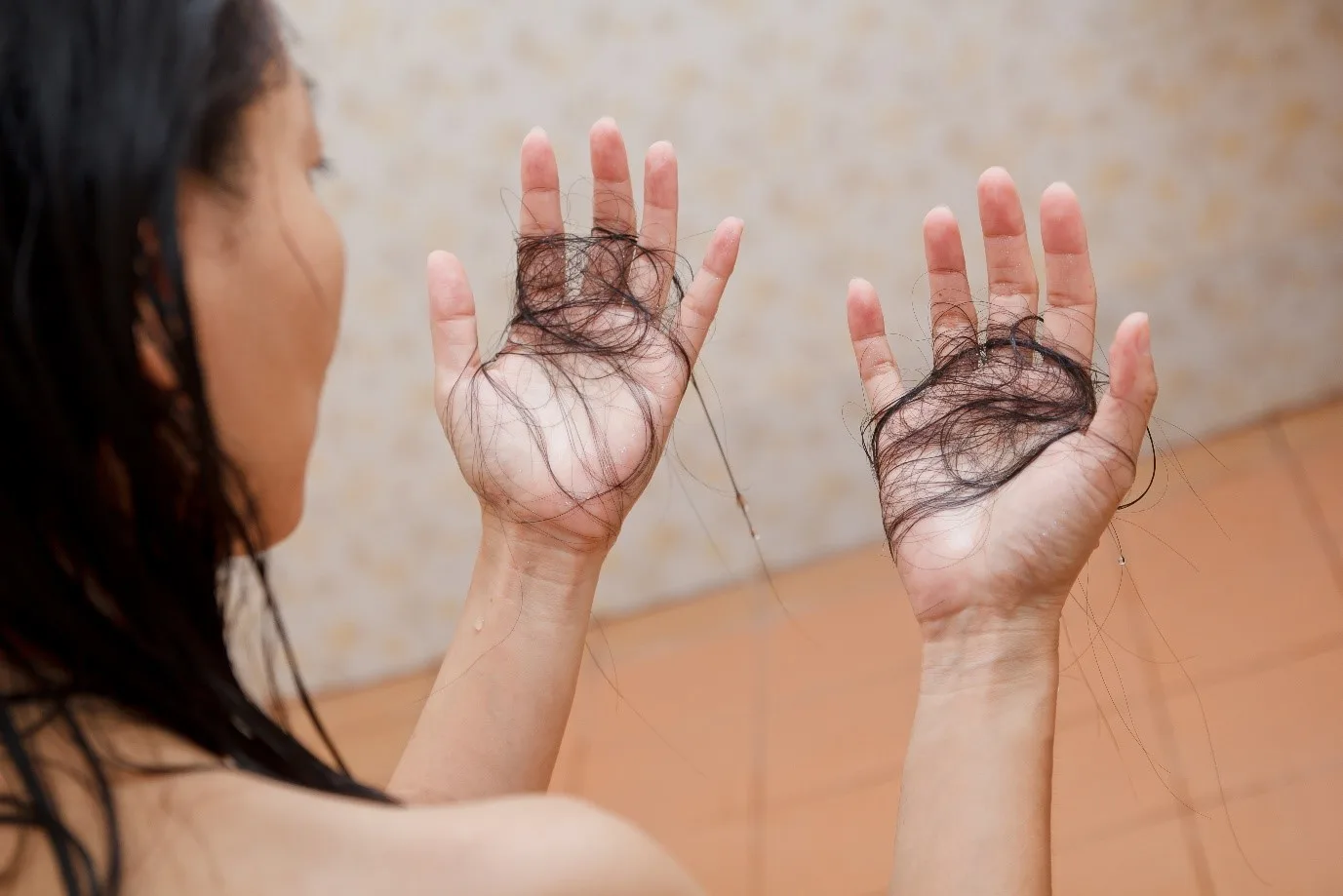Does an Oily Scalp Cause Hair Loss?
We all suffer from oily hair at some point in our lives. That greasy hair could be due to your weekly traditional oiling or just a lack of shampoo, and almost everyone can relate to this predicament. But having excess oil on your hair can also cause you concern in the form of hair loss and dandruff. And your first step is to understand the scalp ecology.

What is sebum or oil?
Your body is covered in small glands known as sebaceous glands that have one job – To secrete sebum or oil. This waxy-liquid substance is essential in regulating the health of your skin, by creating a protective layer against any external harm. It prevents germs and dirt from affecting your skin and hair.
The face and the scalp have the highest concentration of sebaceous glands as these areas are more sensitive and require higher protection. The scalp secretes oil to prevent any form of bacteria, pollution, or grime from playing havoc. It creates a barrier for the skin that also prevents the escape of moisture, keeping your scalp hydrated. It coats the hair strand and prevents it from drying out, while nourishing the roots.
This oil production is mainly controlled by your hormones. It can also be affected by weather changes, stress or even diet. So, any fluctuations in your hormones, or any other factor, can increase your scalp oil beyond acceptable levels. This is where the trouble starts.
Oily scalp hair loss
When your scalp is triggered into producing excess oil, the first thing it does is clog the pores. Your scalp needs to breathe in a way and when the pores are clogged, the ecosystem is thrown into disarray. This excess oil attracts dirt and germs, which it was supposed to protect against. This prevents any new hair from growing out.
This overproduction of oil weakens your hair follicle which forms the base of your hair strand. You will find hardening at the roots and micro-inflammations at the follicle, which reduces the grip on your skin. In this deteriorated state, the hair strand falls out and the new hair strand cannot take root.
So, if you’re wondering does oily scalp cause hair loss, you wouldn’t be wrong. It is a major factor in your hair loss and can aggravate it to a large extent. But it needs to be taken with a pinch of salt, as you can’t put all the blame on a greasy scalp. Oily scalp and hair loss have a direct correlation, but the conditions are made worse by other damaging infections that can arise.
Hair dandruff
One issue that is often overlooked with oily scalp is dandruff. This is caused by an oil-eating fungus called Malassezia Globosa. This fungus breaks down the sebum and produces a substance that the body is reactive towards. If you’re unlucky to fall in that category, your body will react in the form of itching, red scalp rashes and white-yellow flakes of dead skin.
When your sebaceous glands are overactive, it provides fodder for the fungus to grow exponentially and worsen your condition. Scratching your scalp can further damage the hair follicles and weaken them even more. In addition, the scaly skin causes a disruption in your hair roots. All of these can further aggravate your loss of hair, even if they don’t directly cause it.
How should you prevent hair fall due to oily scalp?
Once you know that oily scalp hair loss is your main problem, you can go about trying to solve it. The focus is to get the oil production under control, and this should also help any dandruff problem you might have.
- Clarifying shampoos are strong shampoos that can lift all the oil and dirt from your scalp and hair, allowing it to be washed away. These are great to reset the state of your scalp but should not be used too often unless you want the opposite effect.
- Apple cider vinegar can remove the dirt and oil from your scalp, while strengthening your hair strands. It brings antioxidant and anti-fungal properties to protect your scalp from infections and damage.
- Aloe vera is a great tool in your fight against oil. Although it is a hydrating agent, it has shown to get rid of your excess oil and dirt. It can calm an itchy scalp and get rid of any bacteria that might have taken hold.
- Tea tree oil application has shown to reduce the greasiness on your scalp and hair, while reducing the itching sensation that is associated with dandruff.
- Lemon juice works wonders on regulating the pH levels of your scalp and in eliminating oil build-up. It works to reduce the inflammation that is associated with scalp infections.
- A balanced diet can go a long way in solving your oil problems. Include probiotics, fatty acids, low sugar foods and Vitamin B in your diet.
- Reduce your stress levels through exercise and meditation, as the cortisol that is secreted during stressful times can spike your oil production.
- Incorporate a healthy hair-washing regimen. If you don’t allow the oil to build-up, all your problems will reduce automatically. It is important to use scalp shampoos regularly that keep your oily scalp hair loss in check. Avoid conditioners unless they are specifically meant for oily scalps.
You should now have clarity on the question - can oily scalp cause hair loss and be the cause of dandruff. But you don’t need to let it become a source of constant worry. You can try the options mentioned above, but if you’re rushed for time and need a quick solution, try the Head and Shoulders Anti-hair fall shampoo that can get rid of dandruff flakes and rescue your hair from damage. All these solutions and more, can help you regulate the health of your hair so that you don’t need to fear hair fall due to oily scalp anymore.



